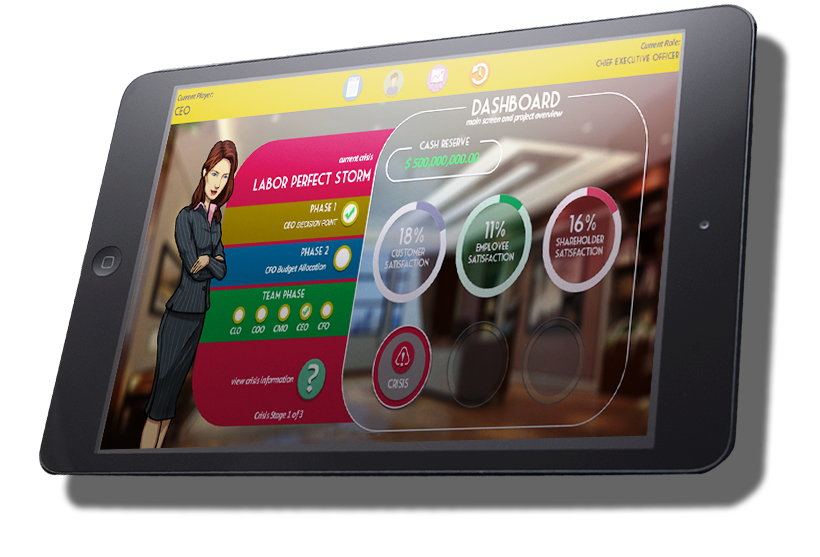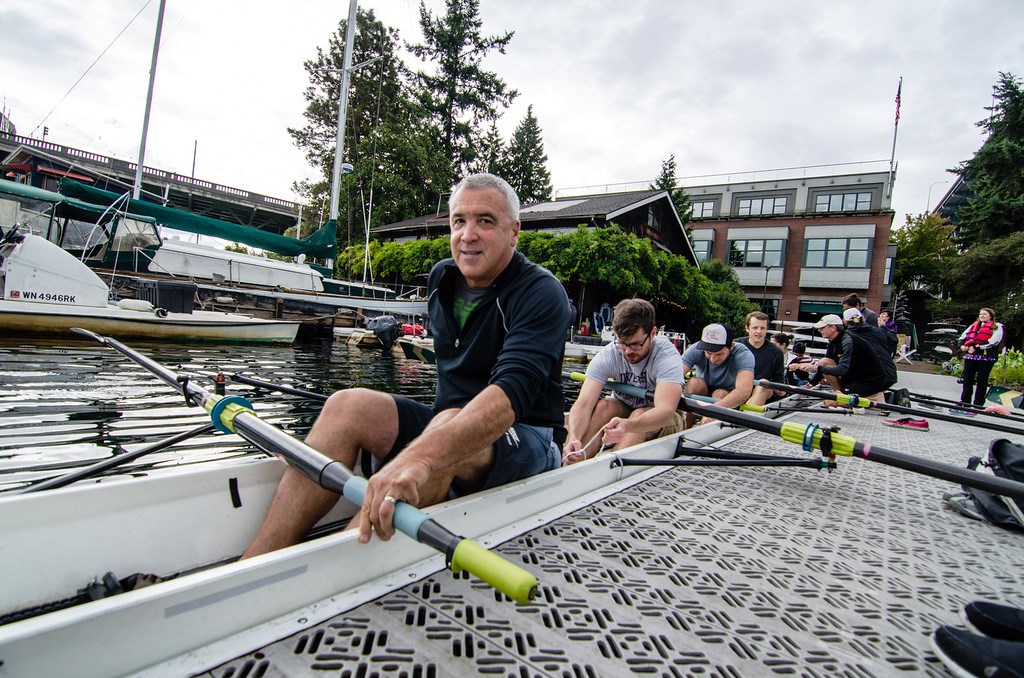CLST harnesses the power of gaming to enhance and expedite leadership development
 Leadership is not a game. But games can create better leaders.
Leadership is not a game. But games can create better leaders.
That’s the idea behind a long-running initiative of the Foster School’s Center for Leadership and Strategic Thinking (CLST) to harness the power of gaming toward accelerating leadership development and improving strategic thought.
“Over the last eight years, Foster has envisioned using gaming and gamification to augment how students learn about leadership and management on a national and international basis,” says Bruce Avolio, director of the CLST and the Mark Pigott Chair in Business Strategic Leadership at Foster.
Those visions are quickly becoming reality.
Ready player
The CLST’s first adventure in game development grew out of an in-depth case study of Alaska Airlines—a close examination of the Seattle-based carrier’s multi-faceted transformation over the first decade of the new century. Merging the innovation of game-playing with deep insights from this exclusive access to Alaska’s leadership and strategy produced “Wheels Up,” a board game that poses a series of strategic decisions.
This old-school board game concept evolved into what Avolio terms a “gamulation”—a mashup of game and simulation—that the CLST developed with Bellevue-based game developer Recurrence. “Liberty Air” is a digital avatar game, compatible with PCs and mobile devices, that immerses teams in the roles of senior managers tasked with running the complexity of a large and sophisticated airline, addressing a litany of strategic challenges.
Avolio says this dynamic and engaging application of the case method is being used at the UW and 50 other universities—1,000 students are playing on an average day.
Next level
A third foray into gaming is the CLST’s 2016 acquisition of Zealyst, a developer of game technology that coalesces large organizations into affinity groups. Avolio says that this new application, nearing relaunch, can help like-minded—or like-skilled—people meet more rapidly in large organizations (from an undergraduate business program to a multinational corporation). Or it could allow administrators to identify candidates and place into peer learning groups for advanced leadership development.
Most recently the Center has received a $200,000 seed grant from the National Science Foundation to develop a next-generation gamulation—like Liberty Air but with continuous real and real-time data—for accelerating the development of entrepreneurial leaders in a high-tech startup enterprise. And the center will be developing a gamulation for T-Mobile focusing on managers in retail and care centers.
Virtual reality applications are in the plans, too.
At the end of the day, it’s all about fostering modern students into strategic leaders, whatever their title.
“We’re trying to show that leadership is more of a way of thinking and a role versus a title. You don’t have to be a president or CEO. People can lead in many ways,” Avolio says. “Through games and gamulations, we can expose students to a range of experiences that help them understand this.”

